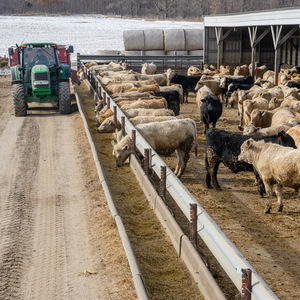New FSMA compliance program launched for biodiesel producers

Photo: Joe Murphy, Iowa Soybean Association
April 20, 2018
BY Ron Kotrba
A new food safety program has been developed by the Iowa Biodiesel Board to help biodiesel producers comply with the U.S. government’s Food Safety Modernization Act, deadlines for which are quickly approaching. Glycerin, a byproduct of biodiesel production, is often used as an animal-feed or food-grade ingredient. FSMA compliance is necessary for biodiesel producers whose glycerin may end up in the food or feed supply downstream.
This September is FSMA’s Hazard Analysis and Risk-based Preventive Controls deadline for companies with less than 500 full-time employees.
“If you’re a biodiesel producer and there is a reasonable chance that even some of your glycerin is going into the feed or food supply, then you will have to comply with the Food Safety Modernization Act,” said Tom Brooks, chair of the Iowa Biodiesel Board and general manager of Western Dubuque Biodiesel, a plant in Farley, Iowa. “As the largest biodiesel-producing state, the Iowa Biodiesel Board decided we were in a good position to deliver a compliance program to its members, and that it could expand the offering to all biodiesel producers. This is an industry need.”
Advertisement
The compliance process itself is not a simple matter, Brooks said. Covered facilities must develop and implement a written plan that covers hazard analysis, preventative controls, monitoring procedures, corrective action procedures, verification procedures, a supply chain program and a recall plan.
Working with Degart Global, a committee of biodiesel producers, ingredient marketers and food safety experts developed the IBB Food Safety Program. It consists of information, materials and the opportunity for consulting. This program simplifies compliance and reduces cost for biodiesel plants.
Designed to complement an existing BQ-9000 or other quality management systems, the IBB Food Safety Program includes quality management procedure (QMS) templates and examples to guide users who do not have a QMS in place.
IBB’s package includes step-by-step guidance, templates, forms, standard operating procedures (SOP) and other documented information for hazard analysis and preventive control measures.
Advertisement
The one-time cost ranges from $3,000 to $6,000, and a one-day off-site desk review of the plant’s documents or two-day on-site implementation assistance are available for additional fees.
“Compared to hiring another third party to build a compliance program for you or trying to do it yourself, IBB’s program is a simple, affordable way to get into compliance,” said Grant Kimberley, IBB executive director. “We hope others outside of Iowa will take advantage of it.”
A webinar on the new program will be held May 10 at 10:00 am Central time. Click here to register.
Related Stories
A group of 28 House members on May 16 sent a letter to President Donald Trump urging his administration to adopt timely, robust Renewable Fuel Standard renewable volume obligations (RVOs) for 2026 and beyond.
A bill to formally adopt a revenue certainty mechanism to support the production of SAF was introduced in the U.K. Parliament on May 14. The proposed scheme is in the form of a guaranteed strike price.
Delta Air Lines on May 7 announced its strong support for new bipartisan, bicameral legislation that will accelerate the growth of sustainable aviation fuel (SAF) in Michigan. The bill aims to create a SAF tax credit of up to $2 per gallon.
The U.S. EPA on May 14 delivered two RFS rulemakings to the White House OMB, beginning the interagency review process. One rule focuses on RFS RVOs and the other focuses on a partial waiver of the 2024 cellulosic RVO.
U.S. EPA Administrator Lee Zeldin on May 15 told members of the House Appropriations Committee that the agency is working as quickly as it can to take action on the backlog of RFS small refinery exemption (SRE) petitions.
Upcoming Events










